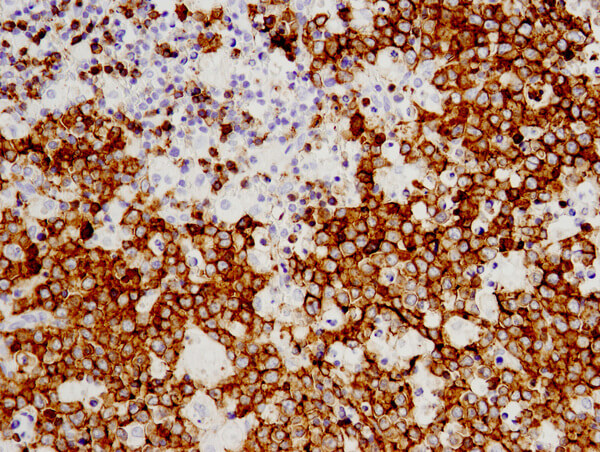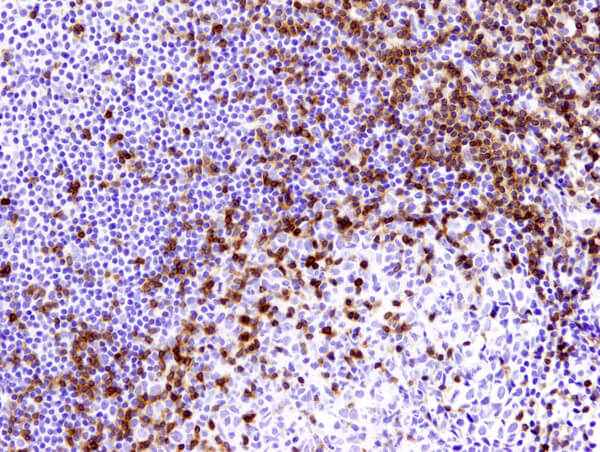The adaptive immune response functions to destroy invading pathogens and relies on the capacity of immune cells to distinguish between the body's own cells and unwanted invaders.
The adaptive immune system uses antigen-specific receptors on T and B Cells generated by gene rearrangements during development. These varying receptors produce an array of immune responses to pathogens and enhance the immune response to subsequent encounters with that pathogen through the formation of immunologic memory—i.e. “learning” from the initial encounter.
The adaptive immune response involves two types of responses: antibody and cell-mediated immune responses.
In antibody responses, B Cells are activated to secrete antibodies which circulate in the bloodstream and permeate body fluids. B Cells then bind specifically to an antigen and marki pathogens for destruction, mainly by phagocytic cells of the innate immune system.
In cell-mediated immune responses, activated T Cells kill host cells presenting foreign antigen on the cell surface or stimulate other immune cells to destroy the pathogens.


The binding of antigen to receptors on B and T lymphocytes are critical events in the generation of the adaptive immune response. Binding of antigen to the B cell antigen receptor (BCR) or activation of the T Cell receptor (TCR) by MHC mediated antigen presentation activates multiple signaling cascades in both B and T Cells, respectively.
The complexity of the signaling within these pathways allows for multiple outcomes that determine cell fate and the nature of the adaptive immune response.
CST is the leader in the production of validated antibodies for the characterization of intracellular signaling pathways and offers numerous antibodies directed against components of B Cell signaling and T Cell receptor signaling cascades.